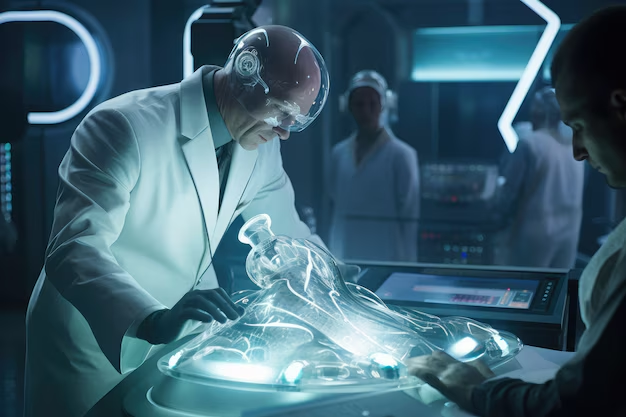The healthcare industry has witnessed significant advancements in recent years, thanks to groundbreaking medical technologies. These innovations not only improve patient outcomes but also enhance the efficiency of healthcare systems. Let’s delve into the most impactful medical breakthroughs shaping the future of healthcare.
1. Artificial Intelligence in Diagnostics
AI-powered tools are revolutionizing diagnostics by enabling faster and more accurate identification of diseases. From analyzing medical imaging to predicting patient risks, AI reduces diagnostic errors and supports early intervention.
2. Wearable Health Devices
Wearable technology such as smartwatches and fitness trackers has transformed preventive healthcare. These devices monitor vital signs like heart rate, blood pressure, and oxygen levels, empowering individuals to take charge of their health.
3. Telemedicine
Telemedicine has bridged the gap between patients and healthcare providers, especially during the COVID-19 pandemic. Virtual consultations and remote monitoring ensure timely medical advice, making healthcare accessible to all.
4. Robotic Surgery

Robotic-assisted surgeries offer precision and minimally invasive procedures. Robots like the da Vinci Surgical System enhance surgeons’ capabilities, reducing recovery times and improving surgical outcomes.
5. CRISPR and Gene Editing
CRISPR technology is revolutionizing the field of genetics by allowing scientists to edit genes with precision. This breakthrough holds potential for treating genetic disorders and even eradicating hereditary diseases.
6. 3D Printing in Healthcare
3D printing has found diverse applications, from creating prosthetics to printing organs and tissues. Customizable and cost-effective, this technology is redefining possibilities in patient-specific care.
7. Advanced Imaging Technologies
Innovations in imaging, such as MRI and PET scans, provide detailed insights into the human body. Enhanced imaging capabilities improve disease detection and enable precise treatment planning.
8. Personalized Medicine
Personalized medicine tailors treatments based on an individual’s genetic makeup. This approach improves treatment efficacy and minimizes side effects, paving the way for more targeted therapies.
9. Internet of Medical Things (IoMT)
IoMT connects medical devices and applications, enabling real-time data sharing and analysis. This interconnected ecosystem enhances patient monitoring and facilitates proactive care.
10. Regenerative Medicine
Regenerative medicine, including stem cell therapy, is pushing the boundaries of healing. It offers hope for repairing damaged tissues, treating chronic conditions, and even regenerating organs.
Conclusion
The integration of advanced technologies into healthcare is transforming the way we prevent, diagnose, and treat diseases. These breakthroughs not only save lives but also improve the quality of care. As innovation continues to flourish, the future of healthcare promises unprecedented possibilities.
FAQs
Q. How does AI improve medical diagnostics?
AI enhances diagnostics by analyzing large datasets and identifying patterns that may be overlooked by humans, ensuring accuracy and early detection.
Q. What are the benefits of wearable health devices?
Wearable devices promote proactive health management by monitoring vital signs and providing real-time feedback to users and healthcare providers.
Q. Why is telemedicine gaining popularity?
Telemedicine offers convenience, reduces travel time, and ensures access to medical expertise, making healthcare more accessible, especially in remote areas.
Q. How does CRISPR technology work in gene editing?
CRISPR acts like molecular scissors, allowing scientists to cut and modify specific sections of DNA to treat or prevent genetic disorders.
Q. What is the future potential of regenerative medicine?
Regenerative medicine holds promise for curing chronic diseases, repairing tissues, and even growing organs for transplantation, transforming patient care.

